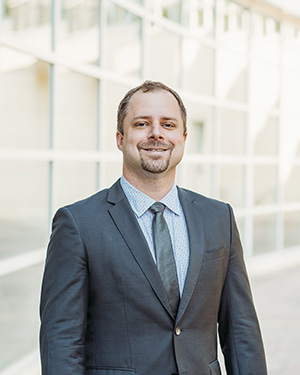Balakrishnan Distinguished Lecture in Population Dynamics and Inequality
Ashton Verdery
3:00pm - 4:00pm
Thursday, October 23rd, 2025
Location - Weldon Community Room
Beyond the individual: Bereavement as a new lens in demography

Dr. Ashton Verdery is a Professor of Sociology, Demography, & Social Data Analytics in the Department of Sociology and Criminology and a co-funded faculty member of the Institute for Computational and Data Sciences at The Pennsylvania State University. He is the Founding Director of Penn State’s Social Science Population Aging Research Center (SSPARC) and an Associate Director of the Population Research Institute. Dr. Verdery obtained a B.A. in Sociology from McGill University and a M.A. and Ph.D. in Sociology from the University of North Carolina at Chapel Hill. He researches and teaches about cross-national demographic and family changes linked to individual and population health, emphasizing novel computational and mathematical methods to sample hard-to-survey groups, model kinship networks, and understand the nexus between social relationships and health.
Abstract
A central component of the demographic perspective is the unity between individual experiences and population dynamics. Fertility not only transforms a parent's life, it also reshapes families and implicates population growth, and there are robust literatures that explore it within and across each of these dimensions. The literature on mortality, however, is not as robustly connected. There is strong attention to individual deaths, such as what predicts them, and clear knowledge about mortality's impacts on population dynamics, but there is less consideration of the social reverberations of death, particularly the losses experienced by the living and how these shape individuals' trajectories. This lecture advances bereavement as a key demographic lens: a way of seeing how kinship structures, mortality regimes, and social inequalities shape who experiences loss, when, and with what consequences. I will highlight three areas of recent research. First, I show how formal and computational demographic models can quantify lifetime exposures to kin loss across cohorts, races, and geographies, revealing stark inequalities in who bears the burdens of early and repeated bereavement. Second, I demonstrate how bereavement cascades into health and social outcomes, from depression to educational disruption and dementia, with implications for aging societies. Third, I argue that bereavement is not merely an individual experience but a population process, one that illuminates the interdependence of lives across generations and connections between the micro-, meso-, and macro-levels. Throughout, I reflect on limits in our current capacity to understand the social demography of bereavement. By reframing bereavement as a vital demographic object of study, we can better understand the social organization of loss and its role in shaping population health and inequality in the 21st century.
Established in 2016, the goal of the Balakrishnan Distinguished Lecture in Population Dynamics and Inequality, to enhance the excellence in the Department of Sociology in Population Dynamics and Inequality and to give visibility for the University in this area in the academic world. The lecture series is made possible due to the support of Professor Emeritus T.R. Balakrishnan and Lois F. Leatham.
Past Lectures
- 2024 Dr. Zachary Zimmer, Professor in the Department of Family Studies and Gerontology and Director of the Global Aging and Community Initiative at Mount Saint Vincent University
- 2023 Dr. Shelley Clark, James McGill Professor of Sociology at McGill University
- 2022 Dr. Robert J. Sampson, Professor of the Social Sciences at Harvard University
- 2019 Dr. Wendy Manning, Professor of Sociology at Bowling Green State University
- 2018 Dr. Paula England, Silver Professor of Sociology at NYU New York
- 2017 Dr. Michael Hout, Professor of Sociology at New York University
- 2016 Dr. Douglas Massey, Professor at the School of Public and International Affairs at the University of Princeton

